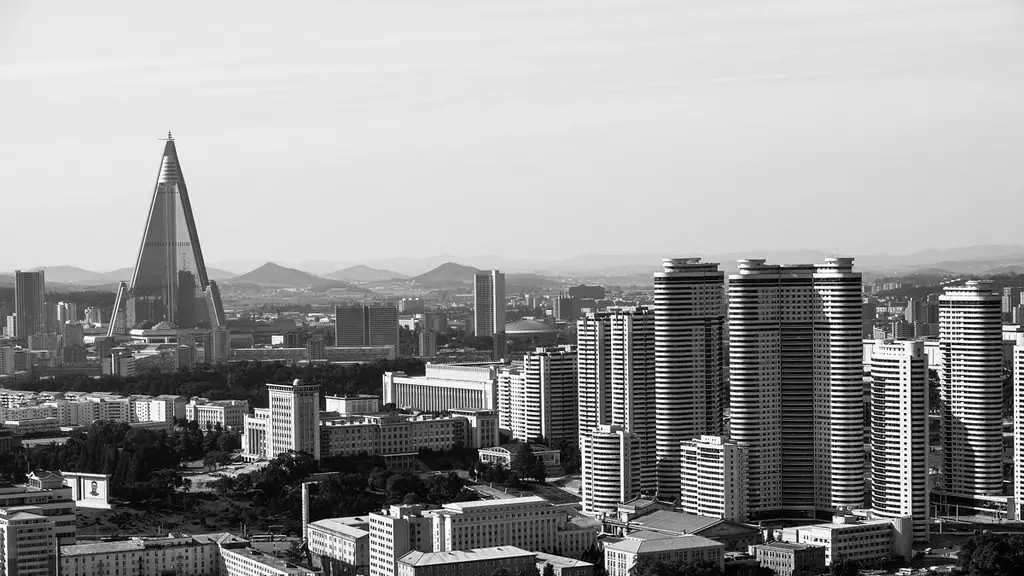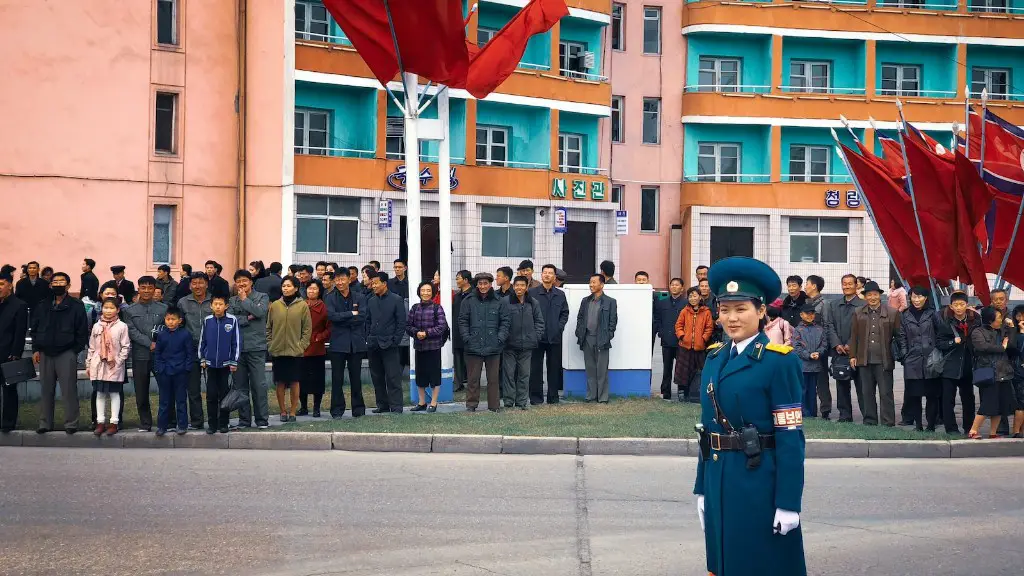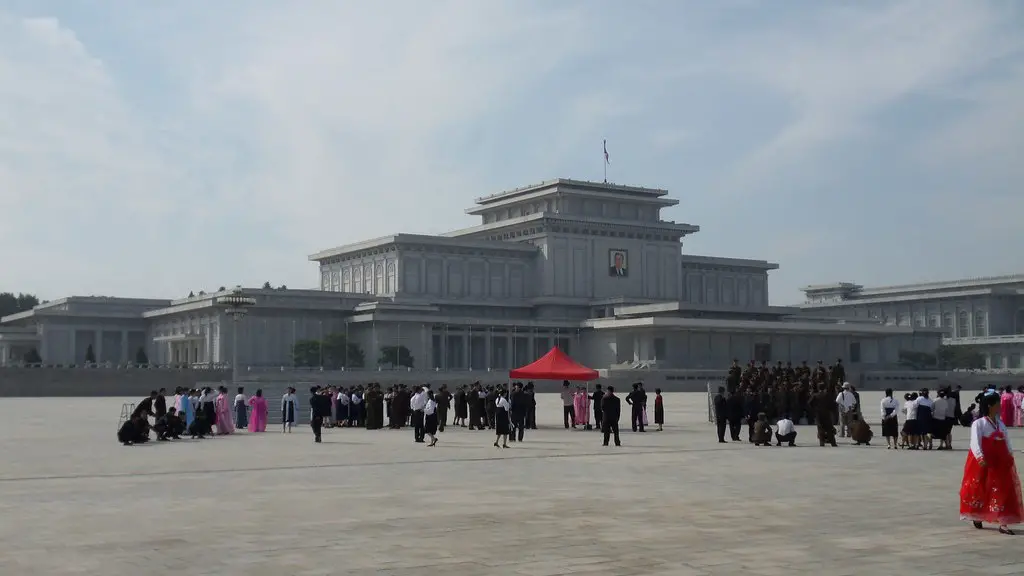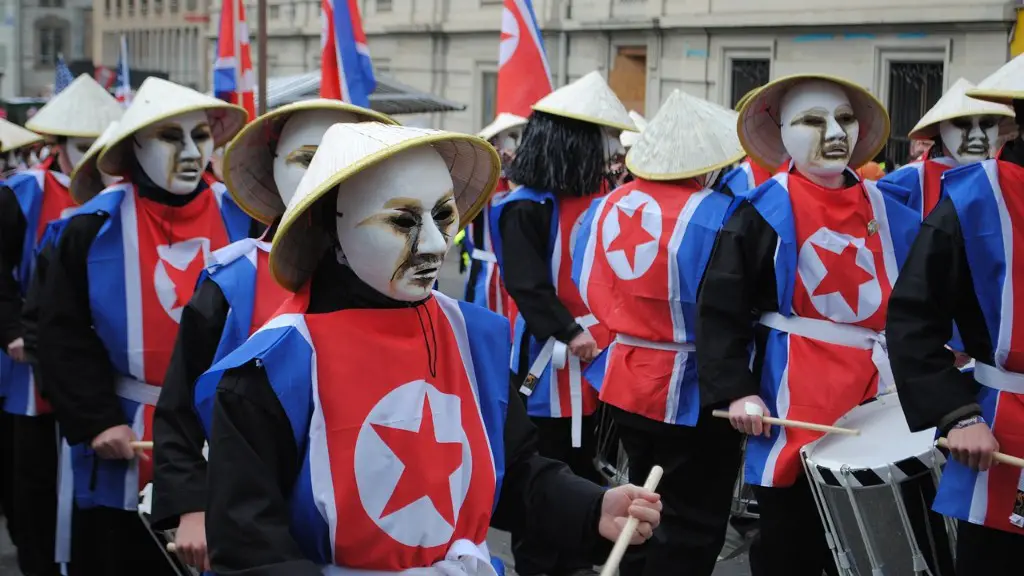What is Happening in North Korea?
North Korea has found itself stuck in a difficult situation. On one hand the nation finds itself in an ongoing battle against an ongoing food shortage; on the other, its connection with other countries has become strained with the rest of the world. In order to understand the root cause of North Korea’s food shortages and its impact on the people, it is important to look at the history, current conditions, and possible solutions.
North Korea is often labelled “the hermit kingdom” because of its isolated relationship with the rest of the world. In the mid-1990s, North Korea faced a country-wide famine, resulting in an estimated 3.5 million deaths and devastating the small nation. This famine was caused by the government’s failure to properly manage the agricultural sector which led to a significant decline in food production due to an inadequate supply of inputs such as fertilizer, fuel, and machinery.
Since the 1990s, North Korea has faced various international sanctions which have inhibited trade and economic relations with the rest of the world. Additionally, political instabilities as a result of the nation’s oppressive regime has lead to a further decline in agricultural production. These limitations have prevented essential inputs such as fuel and fertilizer from entering into the country and has placed the nation in a financially unsustainable position.
Furthermore, North Korea’s economy has struggled in recent years due to insufficient foreign aid and the negative consequences of military tensions with the United States. In addition, it has also been difficult for international aid organizations, such as the World Food Program, to properly deliver aid due to North Korea’s strict regulations.
The continuing absence of these essential inputs has lead to a decline in the overall production of foods, with many people unable to meet the recommended daily intake of calories. Moreover, the country’s public health system has also been negatively affected, with a rise in the prevalence of various illnesses and diseases.
Ultimately, the root cause of North Korea’s food shortage is its current circumstances and the related inability to access necessary necessities such as fuel and fertilizer. While the government has been working towards alleviating the situation by reforming policies, the situation has remained daunting.
International Sanctions
The most important decision to understand North Korea’s food crisis comes from international sanctions imposed on the hermit kingdom since 1996. Daily life in North Korea has been greatly affected, as food imports are prohibited, limiting many people’s ability to purchase basic foodstuffs. Fuel and fertilizer have also been affected, as resources necessary for crop growth have also been limited by the sanctions.
Furthermore, many of the aid organizations have been unable to access North Korea to provide further assistance. A majority of international organizations have refused to enter North Korean territory due to the ongoing tensions between the country and its neighboring countries. This has directly affected the quality and quantity of donations received from the outside world.
The economic sanctions have also prevented the trade relationships to emerge and the country to gain access to the essential resources required for economic development. Since food is essential for the country and its people to sustain, the inability to get access to these necessities has hindered North Korea’s ability to cope with the food shortages.
Additionally, the UN and other international organizations have been unable to provide assistance to North Korea due to the many sanctions that have been imposed by individual countries as well as the country’s own rejection of offers of assistance.
The international sanctions have significantly limited North Korea’s access to foreign aid, creating a near-impossible situation for the citizens to survive and create the necessary resources needed to sustain the people. Under these restrictions, it has been hard for North Korea to be an independent and successful nation.
The Impact of the Food Crisis
The food crisis has had a detrimental effect on all aspects of North Korean life. Due to the lack of proper nutrition, many people are malnourished, and the number of children suffering from malnutrition has risen drastically. The situation has also caused a decline in life expectancy as a result of illnesses caused by a lack of nutrition.
In a survey, North Koreans reported their average income, in their national currency, as nearly 400,000 won, about 4.4 US dollars, for 2018. This figure is indicative of the dire state of the country’s economy, adding to the severity of the food crisis.
Moreover, due to the country’s security issues, many people have fled the country to escape the food crisis and the political instability, creating a severe strain on the population. Furthermore, the limited agricultural resources available to the country have also caused a decline in crop yields, hindering North Korea’s already weak economy.
When considering the impacts of the food crisis in North Korea, it is crucial to note the many people that have been affected. Despite a significant decline in the number of susceptible people, it is estimated that the food shortages have caused 3.5 million deaths between the years of 1994 to 1998. A lack of resources also led to a lack of education, as children were unable to attend schools during this period.
In addition to the devastating loss of life, the food crisis has had a deep impact on the citizens of North Korea, leading to physical and mental health issues. To further complicate the situation, the increase in security threats from other countries have only made matters worse.
Solutions
In order to resolve the crisis, it is essential for the international community to put aside political differences and address the situation. To start, the UN and other international organizations need to provide essential resources, such as food and fuel, to the people of North Korea. This will not only alleviate the immediate situation but also improve the welfare of the citizens.
Additionally, there needs to be an effort to reduce tensions between North Korea and other countries, so that the UN and other international organizations can provide aid. The government of North Korea should focus on reforming the agricultural sector, improving infrastructure, and opening up the country to international trade. It should also make it easier for international organizations to access the country, and make sure that the aid provided reaches its people.
Furthermore, there should be a focus on increasing efficiency and technology in North Korean agriculture, so that the nation can develop its own sources of food. Additionally, North Korea should look to reduce government subsidies, increase foreign investments into agricultural innovations, and improve the quality and access to transportation in the most affected parts of the country.
Continuing to gain insight from experts and looking at different perspectives is essential for finding the most effective solution to the food crisis in North Korea. Developing a better understanding of the state of affairs and finding ways to provide aid and support to the people of North Korea is vital for creating a long-term solution to this ongoing crisis.
Current Progress
Recently, the government of North Korea has started to make some progress in addressing the effects of the food crisis. The government has created programs that focus on the improvement of the agricultural sector by increasing the supply of resources such as fuel, fertilizer and improved seed varieties, as well as technological advancements.
In addition, the North Korean government has taken steps to improve the transportation network, allowing for better access to food, while also easing the pressure of government subsidies. The government has also been pushing to open up the country to foreign investments, as a way to develop its agricultural industry.
Currently, North Korea is developing a five-year plan aimed at increasing food production and providing access to essential inputs. It is also working towards obtaining access to international aid, and finding ways to build economic ties with other countries. While the progress has been slow, the government is hopeful that it will have positive effects on the food crisis in the country.
In the past few years, media outlets have also started to document the progress made by the North Korean government and the effects of the food crisis. This is essential for creating awareness and increasing the effectiveness of aid organizations and foreign investors in providing assistance to the people of North Korea.
The Prospects for North Korea
The future of North Korea is dependent on the outcome of the food crisis. If the government is able to resolve the issue, then there is potential for the country to become a more prosperous nation. However, if the current situation continues to get worse, then it is likely that the country will remain in its impoverished state.
One of the most important elements for a successful resolution is for the international community to step in with aid and support. The UN, along with other international organizations, needs to provide assistance to North Korea to begin tackling the problem of food insecurity. International governments need to put politics aside and come together in creating a solution.
In addition, it is also important for North Korea to actively pursue ways to improve its agricultural industry as well as its openness to international trade and investments. This may provide the much-needed resources to help boost the economy and resolve the food crisis.
Ultimately, if the North Korean government, foreign organizations, and other international governments all work together, then there is hope for the resolution of the food crisis in the hermit kingdom. Positive steps are already being taken, and it is important for the international community to recognize this progress and continue to focus on finding solutions.





